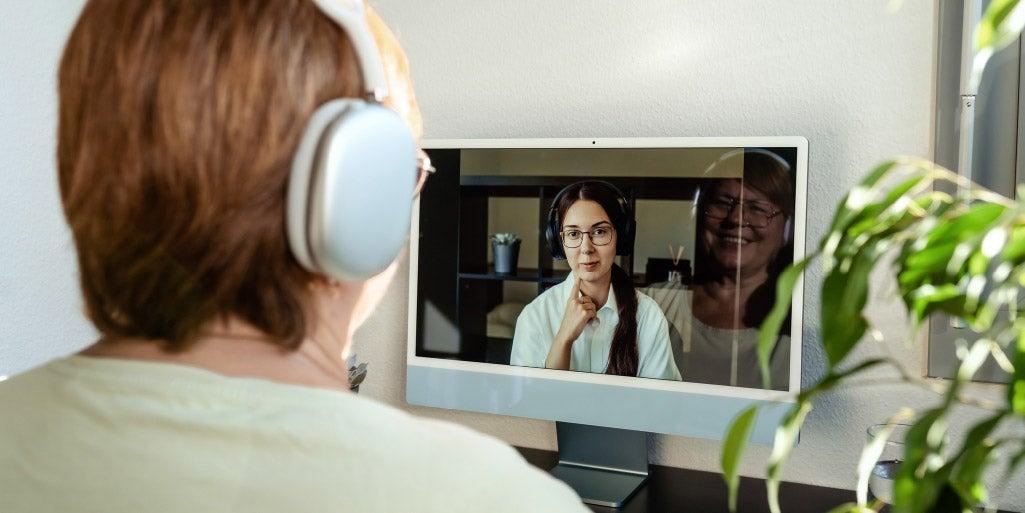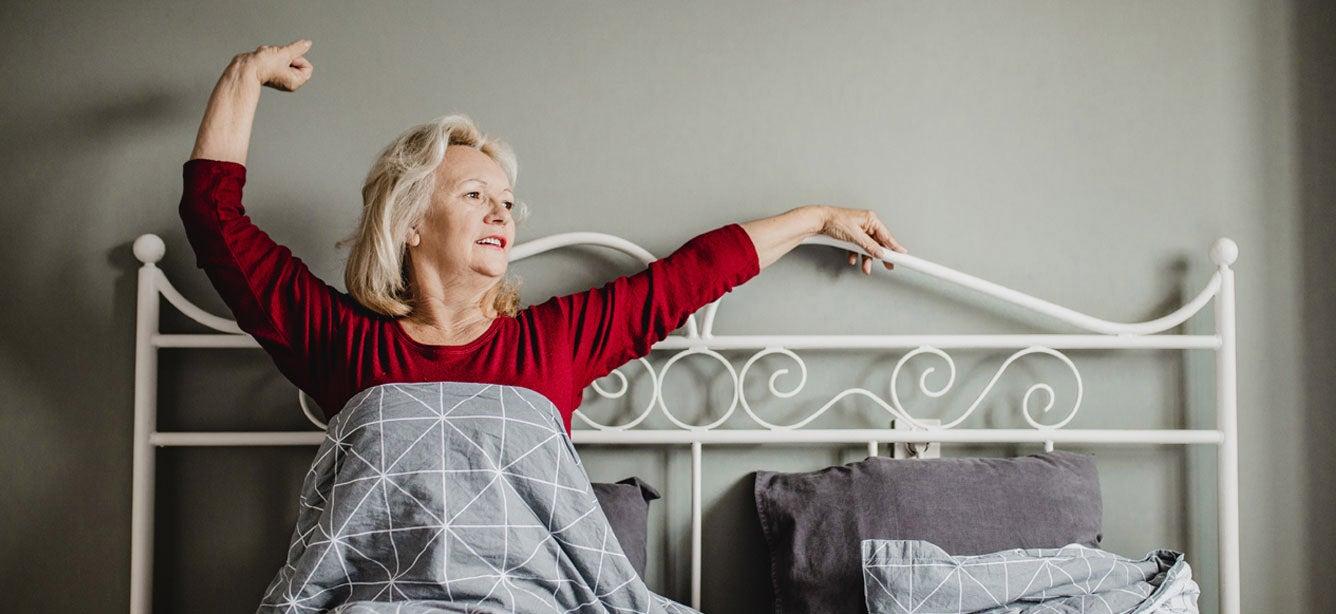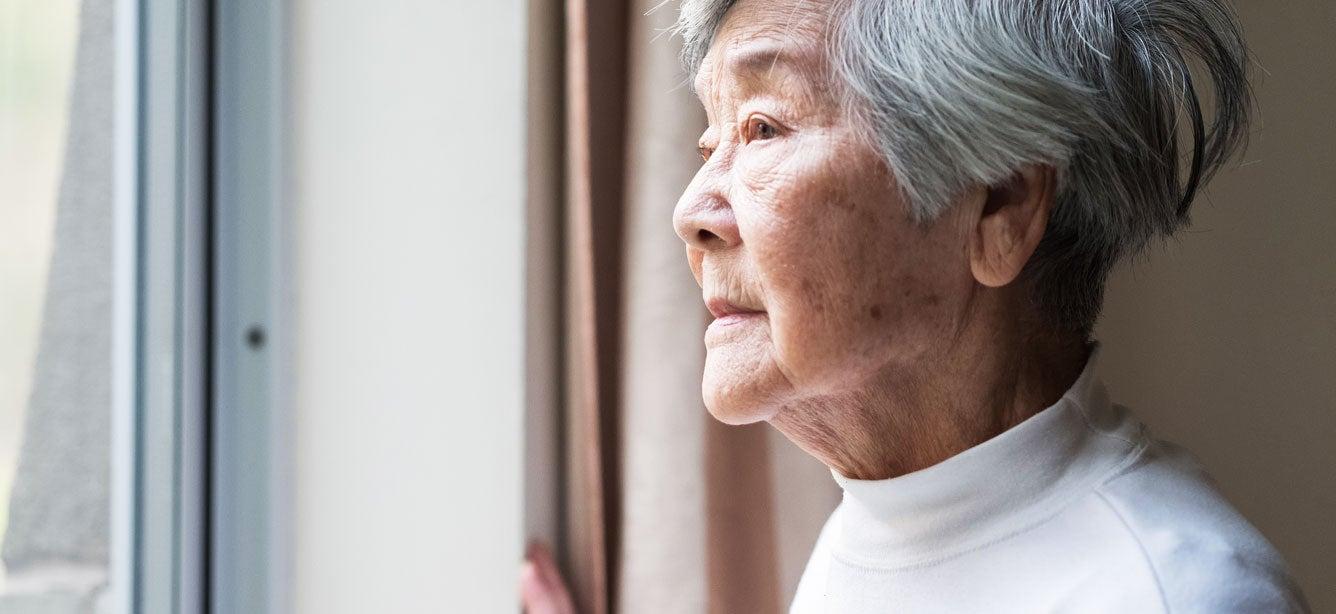Mental Illness and Older Adults: What to Know About Symptoms and Treatment
4 min read

Related Topics
We all know good mental health is an important part of our quality of life. But barriers still exist when it comes to getting support and treatment for mental illness.
How common is mental illness? One in five Americans will experience it in their lifetime. And nearly 15% of adults age 50 and older have some type of mental health disorder.1 Given the nation’s large aging population, the number of older adults with mental health disorders is expected to double by the year 2030.
Despite being so widespread, mental illness remains seriously underdiagnosed and undertreated in older people. In fact, two-thirds of older adults with mental health problems do not receive the treatment they need.
Why is there a lack of mental health support for older adults?
If mental illness is such a pressing issue in older Americans, why do so many people remain undiagnosed and untreated? Part of the problem may be negative stereotypes about aging—the idea that it’s “normal” for people to grow lonelier or more unhappy as they age. But, in fact, feelings of depression or excessive anxiety are not a normal part of growing older. They’re signs of treatable medical conditions, just like diabetes or hypertension.
There is also a social stigma (negative beliefs and misconceptions) surrounding mental health issues today. Lack of awareness and education about mental health can lead to discrimination against people with mental health problems, making them less likely to seek help and treatment.
Lastly, some older adults face practical barriers when it comes to getting mental health services. Living in a rural area or lacking transportation to and from provider visits can make it difficult for many people to get the care they need.
Why is mental health an issue in older adults?
Older adults face a higher risk for mental health problems due to a number of reasons. These include:
- Loss of a loved one
- Loneliness and/or social isolation
- Chronic illness or disability
- Changes brought on by retirement
- Certain medications
- Alcohol use or abuse
- Stress of caregiving
What is the most common mental health problem for older adults?
Anxiety and depression are among the most common mental health disorders affecting older adults.
Anxiety: Symptoms and treatment
Severe anxiety that disrupts your daily functioning can lead to a lower quality of life and even physical health problems. Between 3% and 14% of older adults meet the criteria for an anxiety disorder.2
Symptoms of anxiety in older adults include:
- Feelings of excessive nervousness or fear
- Compulsive, repeated safety checks
- Avoiding social situations
- Avoiding routine activities
- Physical signs like shallow breathing, sweating, trembling, chest pains, headaches, gastrointestinal problems
Common anxiety disorders include:
- Panic disorder: Characterized by panic attacks or sudden feelings of terror that strike repeatedly
- Obsessive-compulsive disorder: Suffering from repetitive, unwanted thoughts or rituals
- Post-traumatic stress disorder (PTSD): Nightmares, depression, and other persistent symptoms after a traumatic event
- Phobias: Extreme fear of something that poses little real danger
- Generalized anxiety disorder: Chronic, exaggerated worry about everyday activities
Anxiety is highly treatable through therapy, medication, or a combination of both. Treatment plans and needs vary for each person.
Depression: Symptoms and treatment
Depression is a mood disorder defined by feelings of intense sadness and despair that last for weeks or even months at a time. One study found that 27% of older adults met the criteria for a diagnosis of major depression.3
Common symptoms of depression include:
- Loss of pleasure in everyday activities
- Poor sleep
- Rapid weight gain or loss
- Low energy
- Lack of ability to focus
Depression can severely limit one’s quality of life and ability to take care of themselves. It can also lead to physical health problems, such as slower recovery from physical illness. In addition, depressed people are at a greater risk for suicidal thoughts and actions.
Like anxiety, depression is a very treatable disorder, with medication and psychotherapy—or a mix of the two—being the main avenues of treatment.
Take a mental health screening
If you’re experiencing symptoms of anxiety or depression, you’re not alone; mental health disorders affect millions of older Americans. Help is available, and healing is possible. The earlier you identify and treat your symptoms, the faster you’ll be able to feel better.
Start by taking an online screening from Mental Health America. This is a free, anonymous, and 100% confidential way to learn about your personal mental health. While this tool is not the same as an official diagnosis, it can help you start a conversation with your health care provider or loved ones.
If you or someone you know is in crisis and would like to talk to a trained counselor, dial or text 988 from your phone to reach the National Suicide Prevention Lifeline. This service is free, confidential, and available to anyone in the U.S. 24/7.
Getting affordable mental health care with Medicare
Worrying about health insurance costs should never be a barrier to mental health treatment for older adults. Medicare helps cover a wide range of mental health services, including screening for mental illness; lab tests ordered by your doctor; and visits with a doctor, psychiatrist, clinical psychologist, or clinical social worker. Medicare Part D helps cover the drugs you may need to treat a mental health condition. To learn more about mental health coverage under Medicare, contact your plan provider.
"Mental health is just as vital as physical health, especially as we age," explained Amanda Krisher, MSW, LCSW, Associate Director of Behavioral Health for NCOA's Center for Healthy Aging. "Too often, older adults dismiss feelings of anxiety, depression, or loneliness as just ‘part of getting older,’ but they’re not. If you’re struggling, getting the right support can make all the difference. You deserve peace and joy at every stage of life.”
Sources
1. National Institute of Mental Health. Mental Illness. Found on the internet at https://www.nimh.nih.gov/health/statistics/mental-illness
2. Mental Health America. Anxiety in Older Adults. Found on the internet at https://www.mhanational.org/anxiety-older-adults
3. Mental Health America. Depression. Found on the internet at https://mhanational.org/conditions/depression




